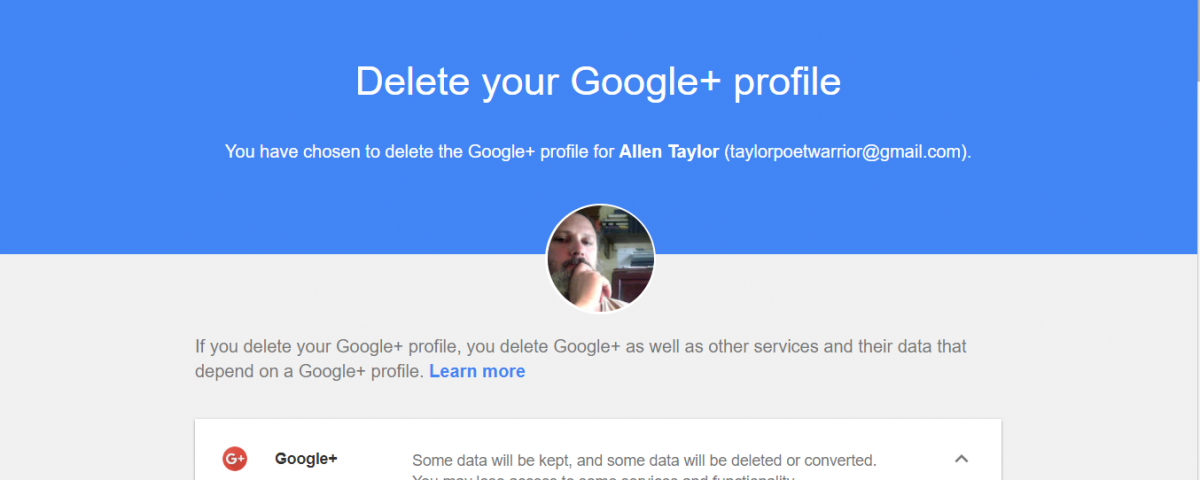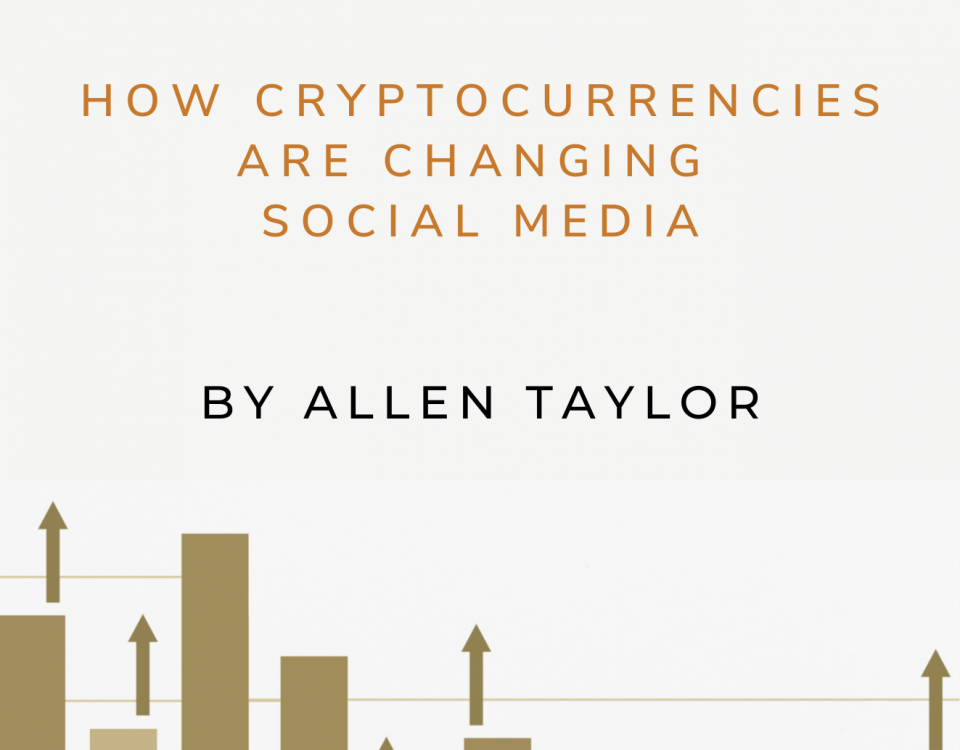Google+ And Me: Why I Deleted My Account

Add Book Publishing Consultant to My List of Pro Credentials

The Evolution of Social Media
Like most online marketers, I like trying out new platforms just to see if they’ll add value to my business. In many cases, we secure social media accounts just so no one hijacks our online identities. So a few years ago, when Google decided to start its own social media platform, called Google+, I joined and created a profile. I was even active on the platform for a while before I abandoned it.
The Reasons I Abandoned My Google+ Profile
Like anything else, social media publishing takes time. For every social media account a person sets up and tries to manage, there is an associated element of time management. You have to learn the ins and outs of the platform, what kind of people hang out on that platform (is your audience even there?), the most effective ways to interact with your target audience, best practices, and so on. Once you learn the best and most effective ways of posting and interacting, you have to put together a strategy for using that channel to market your business effectively. If it’s just for personal use, that’s not a big deal, but if you intend to use a platform for a marketing channel, lead generation, sales, or anything related to your business, then you’ve got to have a strategy that is effective and executable.
There were things about Google+ that I liked. One thing I noticed early on is that many of its users were technology buffs, and many were tech professionals. That was a good thing, especially since my content writing business was targeted toward that crowd.
At the time I started posting to Google+, Facebook was in its hey day, and I was very active on Twitter. Over time, I noticed that my marketing efforts were more effective on Twitter. To some extent, I had better results on Facebook. But managing my overall social media marketing plan through all three channels, and I was also trying to make Pinterest work for me at the time (a goal I ultimately abandoned), became a chore. It became even more a chore during times when my business thrived. How could I manage my blog, my clients, and my social media schedule without burning myself out on all three? I couldn’t. So I learned.
Aside from time management, I also discovered a downside to Google+. When I sought to manage my circles more effectively, I found out that every little tweak I made caused me to lose sight of some of my favorite Google+ users in my Google+ Stream. Tweaking circles was an art form, and I didn’t have the time to perfect that art. I lost interest.
Why I Decided to Delete My Google+ Account
Unless you were living under a rock last year, you likely heard about the Facebook-Cambridge Analytica Scandal. In short, Cambridge Analytica acted as a beard for political aspirants to shave personal data of Facebook users for personal political gain. Gasp! The nerve!
Okay, somewhat facetiously, I mock the protesters. Such shenanigans, of course, are without excuse, but human nature is what it is. In political game, political actors will do whatever they can to gain an upper hand. Always have, always will. Still, the event concerned me as much as it did anyone else. Could my personal data be used for nefarious purposes? Was it in this case? On that second question, I have no way of knowing.
Following the Facebook-Cambridge Analytica Scandal, Google+ discovered its own ghost in the closet. It turns out, their technology was vulnerable to hacking and allowed member personal data to be breached. They decided to keep it quiet for fear that their CEO may be dragged in front of Congress after Mark Zuckerberg. Rather than face such that onerous fate, Google decided it would shut down Google+.
The effective date of the shutdown will be in April 2019. I shut down my account yesterday.
Why wait? Either way, after April of this year, my Google+ data will be gone from the public Web. It will still likely exist in Google’s database, but it will no longer be publicly accessible (I hope). However, if I delete the account myself, then I don’t have to rely on Google doing it for me. All I had to do is go into my account settings and select “Delete Account Information.” Now it’s all gone. I can’t even access it.
To be clear, I have not deleted my Facebook account. I may yet, but I have not decided to do it, primarily because I have many family members to whom I’m connected only through Facebook. Facebook, for me, has become more of a personal space and less of a business space. I’m much more active on LinkedIn these days, for business. I use Facebook now about once a week and that’s it.
Where I Hope Social Media Goes From Here
Last January, I started edited Blockchain Times. In March, I joined Steemit. Since then, I’ve learned of a couple of other social media platform startups that are utilizing blockchain technology.
Trybe is one such platform that has currently caught my attention. Trybe’s current content focus is on cryptocurrency and blockchain technology, however, they plan to expand into other content niches in the future. They’ve already got the categories for gaming, programming, travel, health and fitness, entertainment, art and design, and science, but they’re asking users to post content only on crypto and blockchain technology at this time. Users can earn Trybe tokens for posting content and interacting with other users.

I like Trybe’s design and user interface, although it does have a few bugs. From time to time, I have difficulty signing into my account, but that passes after some time. I usually don’t have to wait too long. Maybe a day.
Trybe sits on the EOS blockchain. While users are encouraged to hold EOS and to purchase Trybe tokens with EOS, it isn’t necessary. I managed to get an account without EOS. But, if you’re an EOS fan, Trybe is a natural progression from that blockchain to social media. I expect to see good things coming from Trybe.
Some coming improvements to the Trybe website, according to their roadmap, are improvements to the user experience and user interface, wallet enhancements that also include sending and receiving tokens, and a decentralized exchange integration. I welcome all of these improvements, particularly the wallet improvements as Trybe appears to be a good place to attract new customers for my content writing business. I’ve already been paid in STEEM for writing content for clients. Once I’m able to accept payments into my Trybe wallet, I’ll be able to attract more clients through that channel. That is supposed to happen around April this year.
Another blockchain-based social media site I’m looking forward to working is Narrative.
 Narrative is currently in alpha and soon to move into beta. In fact, later this month, they’re supposed to start allowing current users the ability to blog, which means I’ll be able to produce content for a brand new audience. Like Trybe, there are some things I like about Narrative. For one thing, they allow users to purchase niches. Niche owners will earn rewards just for owning the niche. I’ve purchased one niche already and am looking forward to seeing it grow.
Narrative is currently in alpha and soon to move into beta. In fact, later this month, they’re supposed to start allowing current users the ability to blog, which means I’ll be able to produce content for a brand new audience. Like Trybe, there are some things I like about Narrative. For one thing, they allow users to purchase niches. Niche owners will earn rewards just for owning the niche. I’ve purchased one niche already and am looking forward to seeing it grow.
Another thing I like is they allow the Narrative community to vote for niche moderators. You’d think that niche owners could select the moderators. No. Instead, moderators will be elected by the entire Narrative community. This ensures that no one buys a niche and sets up their own little pond in which to position themselves as the big fish with special privileges. Niche moderators will also earn rewards based in their curation efforts. Niche owners can nominate themselves to be niche moderators of the niches they own, but there’s no guarantee they’ll win the vote as others are also allowed to nominate themselves or someone else. I have nominated myself to be niche moderator of the niche I own and plan to nominate myself as moderator for other niches as soon as they become available for that part of the process.
I like the tiered and decentralized nature of Narrative as well as its user interface and web design. I’m hoping it will become the Facebook of the blockchain.
This brings me to my next point. Social media needs to evolve. It’s time to move beyond the centralized approach to a more decentralized approach where users themselves have more control over their own data and how their personal information is used. All three of the blockchain-based social media sites I use promise that benefit. Should that happen, and I hope it will, you’ll see me abandon Facebook as quickly as I gave up on Google+. Are you ready?
Looking for content for your blog?
Call or email today.


